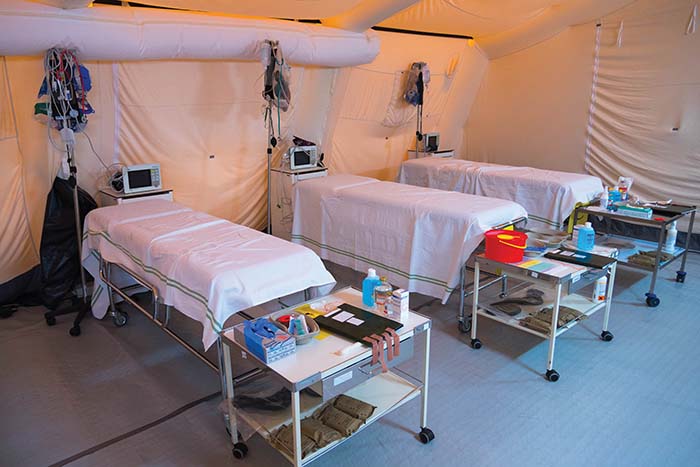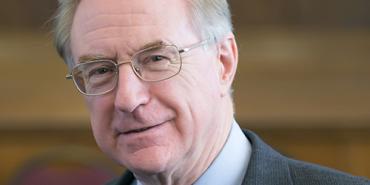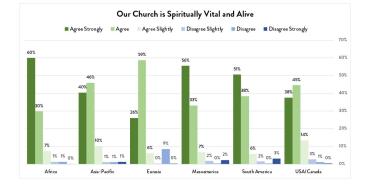A Unique Place in Time

The managing editor of Holiness Today sat down with Nazarene missionary Brad Thomas,* a physician serving with his family in the Middle East, to learn about their unique ministry.
When you began your work two decades ago, where did you first serve?
The first place was an area resistant to the gospel. For over a decade, I worked to develop and improve the health of a population through the skills of quality medical care and training others in this area. I had to learn a new language and handle most of this medical work in that language. My work involved retraining 2,500 local physicians in how to better care for the entire population. The results affected the region because surrounding countries got to see a sustainable model—a success story—and thousands received and continue to receive up-to-date, cost-effective medical care.
Were you doing medical work only?
At that point, yes. But in the midst of that, there was a church plant experiencing a leadership transition. The people came to us and said, “What do we do?” We started coaching that first-generation congregation that knew nothing about church life, spiritual formation, or Christian tradition, but they did know how to pray.
What were they praying about?
Every day they were praying the scriptures, repeating the prayers of David, Solomon, Daniel, and Paul, repeating those words as they asked for wisdom, knowledge of God, and help.
How did God answer those prayers?
He began to help them make steps toward maturity and knowledge. People started coming in and members of the congregation went to extension training classes leading to their theological education and leading them to understanding the nature of God.
The most interesting thing happened. One woman became an ordained elder in the church and then she sat in the pews and let others lead. She took on the coaching role and advised the others. Now they are the church that multiplied and launched new congregations. The effect is that there is a growing, dynamic church with has young people—all of this in an area that is oppressive and closed to the gospel, yet these Christians and churches—the body of Christ—are thriving.
After being there over a decade you moved to another area. Why and where?
God gave my wife and I a new calling and a new area in which He could use us. It caught us off guard.
By this time we had children and the hardest part was uprooting them to seemingly barren place where they had no friends. God is good, showing himself faithful as we help and educate them—He is meeting the needs of our children.
We moved to a place where people need God’s love. He drew us into His heart of prayer and purpose for these people.
God led us to refugee care work. Currently we, along with other compassion-focused organizations, help around 40,000 refugees who have been displaced from their homes, livelihoods, and families. Many have extended family members who are dead, missing, or prisoners. Families with as many as eight members live in 20 x 20-foot tents.
How do you even start to meet the health and spiritual needs of 40,000 who have been displaced from their homes?
Well, we have groups who are teaching mental health care, vocational skills, general education, and helping these people better their lives while in transition.
Then, the spiritual component is getting seekers of faith in their culture group who are reading the Bible together, studying the teachings of Jesus and discovering what that is. They’re asking about God, Jesus, and the Bible.
The healthcare component is teaching them that many of their symptoms are related to stress, grief, and loss—everything they’ve endured.
How do you help them cope with their new reality?
Counseling helps them see that yes, they have experienced these traumatic events but rather than masking the pain by whatever means, they can find healing as they learn coping skills, prayer, and understanding that not all of their medical symptoms are related to disease and physical illnesses.
Once we focus on healing the whole person rather than masking symptoms, they’re discovering better health, which affects the life of the community.
Where do they go from there?
That’s the next challenge. We’ve got to get people out of a crisis mode into a development mode.
How do you do that?
It’s basically helping them find work and purpose. The larger faith community is helping them by doing vocational training and teaching creative life skills.
We don’t yet know where they’re going from the camp. And when the refugees don’t know what’s next, they sometimes run. We read about them in the news. Sometimes they take risky moves on the refugee highway rather than wait and find training and skills that will take them to the next phase of life. We understand that life in a refugee camp seems hopeless, but there are opportunities and we have stories of people who have found opportunities to create a better day.
This is where the church, as the body of Christ, can help train and give these people skills; retool them, that will help them have a fresh start.
We can’t give back the people, property, and things they've lost, but we can give them skills and opportunities to start new careers and businesses to help sustain them.
God wants us to work in the Spirit with Him leading so He can multiply His gifts and provisions—then we’re living with everything we need to meet those He loves at their points of need.
*Brad Thomas is a pseudonym for this Nazarene missionary. Due to the location and nature of his assignment, the name has been changed for this interview.
Holiness Today, January/February 2017
Please note: This article was originally published in 2017. All facts, figures, and titles were accurate to the best of our knowledge at that time but may have since changed.




